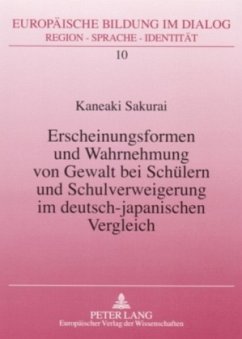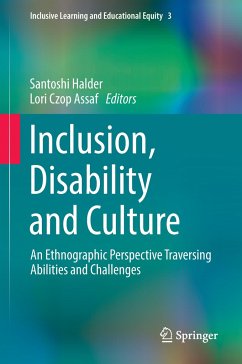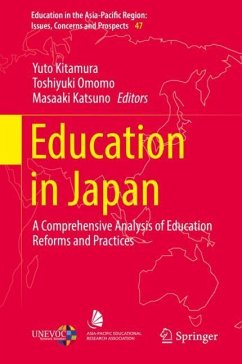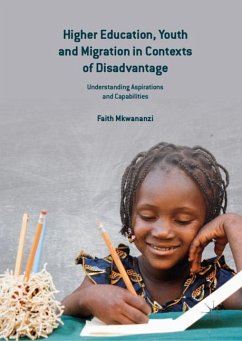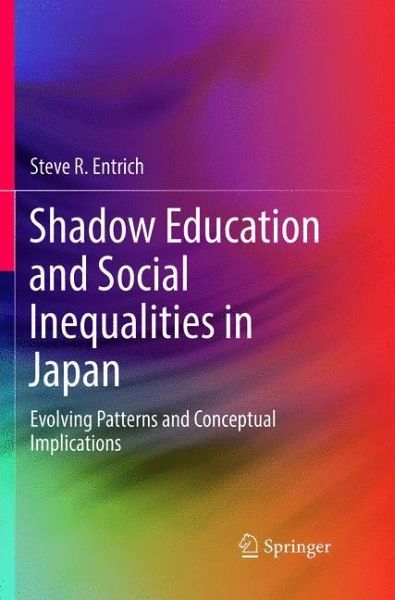
Shadow Education and Social Inequalities in Japan
Evolving Patterns and Conceptual Implications
Versandkostenfrei!
Versandfertig in 6-10 Tagen
98,99 €
inkl. MwSt.
Weitere Ausgaben:

PAYBACK Punkte
49 °P sammeln!
This book examines why Japan has one of the highest enrolment rates in cram schools and private tutoring worldwide. It sheds light on the causes of this high dependence on 'shadow education' and its implications for social inequalities. The book provides a deep and extensive understanding of the role of this kind of education in Japan. It shows new ways to theoretically and empirically address this issue, and offers a comprehensive perspective on the impact of shadow education on social inequality formation that is based on reliable and convincing empirical analyses. Contrary to earlier studi...
This book examines why Japan has one of the highest enrolment rates in cram schools and private tutoring worldwide. It sheds light on the causes of this high dependence on 'shadow education' and its implications for social inequalities. The book provides a deep and extensive understanding of the role of this kind of education in Japan. It shows new ways to theoretically and empirically address this issue, and offers a comprehensive perspective on the impact of shadow education on social inequality formation that is based on reliable and convincing empirical analyses.
Contrary to earlier studies, the book shows that shadow education does not inevitably result in increasing or persisting inequalities, but also inherits the potential to let students overcome their status-specific disadvantages and contributes to more opportunities in education. Against the background of the continuous expansion and the convergence of shadow education systems across the globe, the findings of thisbook call for similar works in other national contexts, particularly Western societies without traditional large-scale shadow education markets. The book emphasizes the importance and urgency to deal with the modern excesses of educational expansion and education as an institution, in which the shadow education industry has made itself (seemingly) indispensable.
Contrary to earlier studies, the book shows that shadow education does not inevitably result in increasing or persisting inequalities, but also inherits the potential to let students overcome their status-specific disadvantages and contributes to more opportunities in education. Against the background of the continuous expansion and the convergence of shadow education systems across the globe, the findings of thisbook call for similar works in other national contexts, particularly Western societies without traditional large-scale shadow education markets. The book emphasizes the importance and urgency to deal with the modern excesses of educational expansion and education as an institution, in which the shadow education industry has made itself (seemingly) indispensable.






